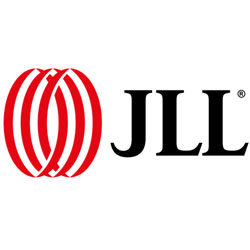Many New Jersey businesses have been severely impacted by closures arising out of the COVID-19 health crisis. Often these closures make it impossible for businesses to meet their contractual obligations with their suppliers, landlords, and other contractors forcing them into default. While the basic premise under most U.S. law is that contracts must be kept and performed, extraordinary circumstances may make performance so fundamentally different from what was reasonably expected as to relieve performance.
Impossibility of Performance
One important defense to a breach of contract claim is based upon the doctrine of impossibility. Impossibility is a concept recognized in unforeseen events that make performance of a contractual obligation impossible. It has been defined as circumstances:
Where, after a contract is made, a party’s performance is made impracticable without his fault by the occurrence of an event the non-occurrence of which was a basic assumption on which the contract was made, his duty to render that performance is discharged, unless the language or the circumstances indicate the contrary.
This doctrine can be employed if performance of the contract is objectively impossible, unless that risk was otherwise assumed by the party asserting the defense. In other words, a contractual obligation is “objectively impossible” if the impossibility arises from the impossible nature of performance (as opposed to arising from the incapacity or fault of the promising party). As a result, the contractual obligation must be impossible because “the thing cannot be done” as opposed to the fact that an obligor “cannot do it.”
As an example, in Facto v. Pantagis. 390 N.J. Super. 227 (App. Div. 2007)., a restaurant suffered a power failure in the middle of a wedding reception, making the performance of the contract impossible. The Appellate Division applied the doctrine of impossibility on all parties excusing the restaurant of performance and also ruled that the reception did not need to be paid by contracting parties.
In consideration of the COVID-19 health crisis, this defense may be applicable in the context of complying with governmental orders. If an obligor’s performance of a contractual obligation is rendered impossible because of an order by the government, then the doctrine of impossibility may provide a defense to a breach of contract claim. The doctrine, however, does not apply to market shifts or the financial inability of one of the parties. Continuation of a party’s financial situation and market conditions are not normally assumed when a contract is made.
Frustration of Purpose
Frustration of purpose is another affirmative defense to a breach of contract that differs from impossibility because its application does not require performance to be impossible. Instead, the defense applies when a party no longer receives the anticipated benefits of the contract due to a superseding unforeseeable event that changes the nature of the parties’ overall bargain.
The frustration of purpose defense has three required elements:
(1) “the purpose that is frustrated must have been a principal purpose of that party in making the contract”
(2) “the frustration must be substantial”
(3) “the non-occurrence of the frustrating event must have been a basic assumption on which the contract was made.” Restatement 2d of Contracts § 265.
This application can be seen in the law school example of a British case, Krell v. Henry, in which a person rented a property to view an event. The event was later canceled, and the purchaser refused to pay for use of the property, as the purpose of using the property was frustrated. There, the court upheld the defense and refused to enforce the contract. Like impossibility, the application of the doctrine is fact-specific and will depend upon the language of your contract and the circumstances surrounding the breach.
Conclusion
The terms of the contract and facts of each case are unique. As a result, whether these defenses and any governmental orders give rise to a defense under the doctrines of impossibility and frustration of purpose requires a thorough analysis of the facts and terms contained in a contract.
If you would like more information on this issue or if you are a small business owner in need of guidance, please contact us today. At Santomassimo Davis LLP, our team of lawyers, experienced in compliance, can help effectively minimize your company’s risk and avoid the unnecessary liabilities many businesses unknowingly face.
Understanding how this affects the small business economy is part of our job here at Santomassimo Davis LLP, as we primarily focus in providing expert Outside General Counsel for a variety of law firms and legal issues related to Corporate and Business Law in New Jersey, New York and Pennsylvania.
Thanks for reading our latest blog talking about topical legal issues facing small businesses. Learn more from our Outside General Counsel Blogs.








Comments are closed